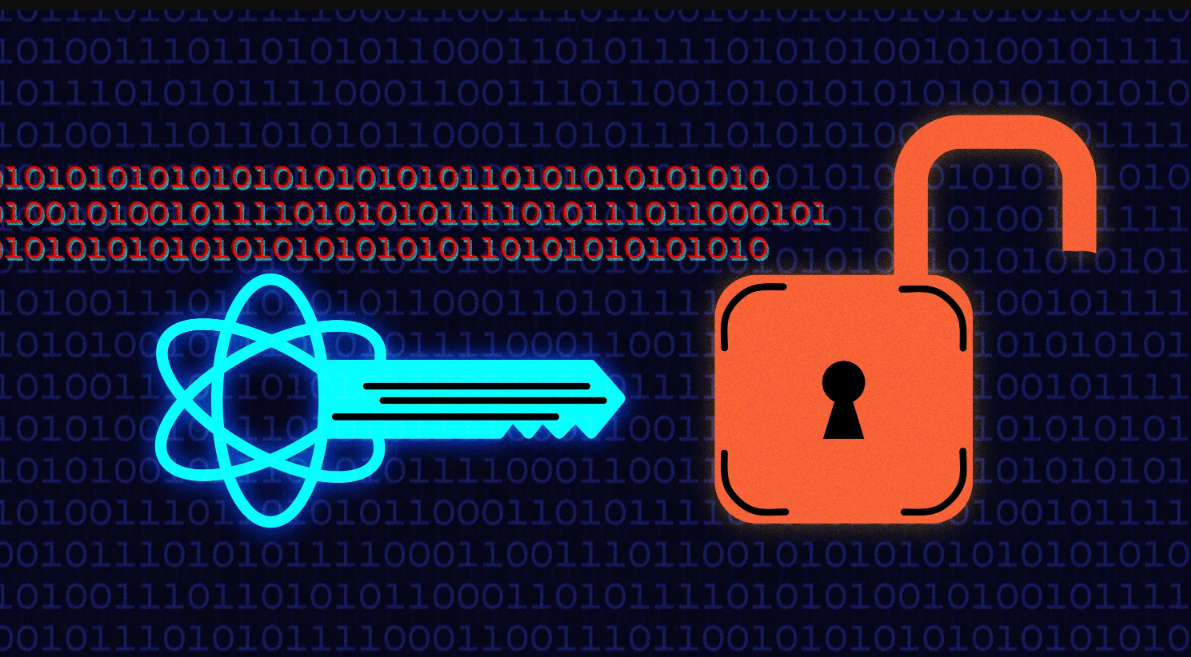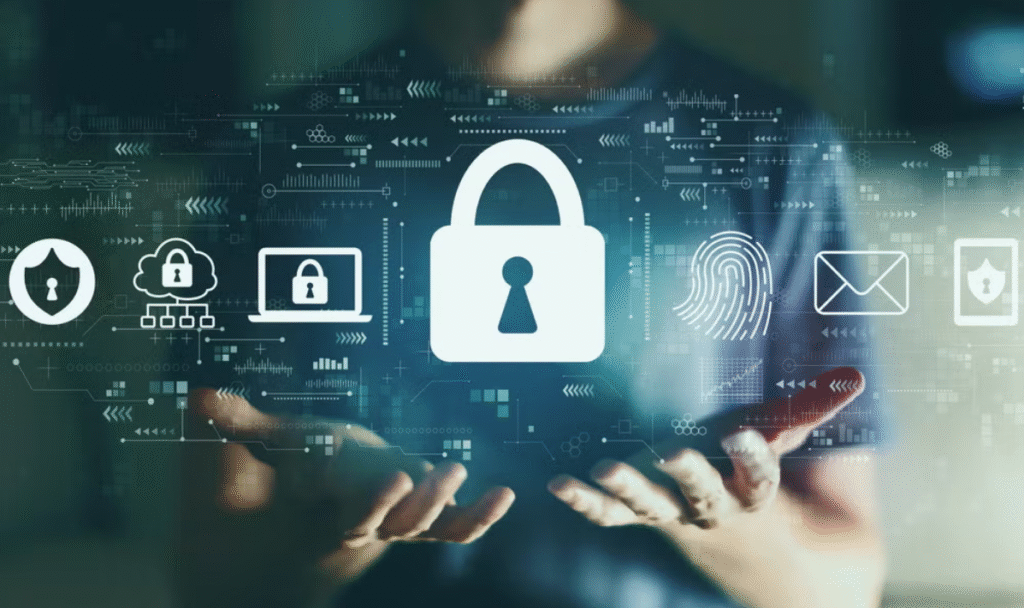In a world where cyber attacks and data breaches are making headlines, never has it been more important to secure sensitive information. Enter quantum cryptography—a new way to secure data that leverages the bizarre and intriguing laws of quantum physics. Quantum cryptography offers unbreakable security, unlike traditional methods, as quantum computers attempt to decrypt traditional encryption. Uses of quantum cryptography for cybersecurity are revolutionizing how we secure everything from payments to national defense secrets from peeping eyes.
Why is the technology picking up steam? Quantum computing poses a threat to the conventional ways of encryption, and these are bound to become outdated in the near future. Since businesses are racing to stay ahead of the threats, quantum cryptography is an answer that will never be outdated. This article outlines the benefits, applicability, implementation concerns, and future potential of quantum cryptography in cybersecurity and a no-nonsense guide to understanding its revolutionary potential.
Learning Quantum Cryptography
What is Quantum Cryptography?
Quantum cryptography employs the principles of quantum mechanics—entanglement, superposition, and the uncertainty principle—to protect. Quantum cryptography differs from classical cryptography in that it is based on the physical nature of particles, such as photons, to construct secure systems.
At its core is quantum key distribution (QKD), a method that allows two parties to exchange encryption keys securely. QKD is founded on the principle that the measurement of a quantum system alters the state. Because the eavesdropper would try to intercept the key, the system is perturbed, alerting the parties to the attack. This renders QKD a cornerstone of quantum cryptography, adding to the impossibility of the traditional method.
On the other hand, classical cryptography depends on algorithms such as RSA or AES, which are based on computational hardness. These can be attacked by brute force, particularly now that quantum computers are imminent. Quantum cryptography is theoretically unbreakable, though, since it is not conjecture-based mathematics but physical principles.
Why It Matters for Cybersecurity
Quantum computing is revolutionary. Shor’s algorithm on a sufficiently powerful quantum computer could factor most encryption algorithms like RSA and ECC in a matter of minutes. This would be compromising everything from online banking to government communications.
Quantum cryptography defeats this with theoretically unbreakable codes. Its eavesdropping detection guarantees that any interception of data will be immediately detected. With cyberattacks evolving at a steady pace, going quantum-safe is no longer a choice—it’s a necessity. Companies need to move now to safeguard sensitive information against the impending quantum threat.
Advantages of Quantum Cryptography in Cybersecurity
Enhanced Security Based on Quantum Foundations
Quantum key distribution (QKD) is a quantum-state secure key exchange implemented for the distribution of encryption keys. If the eavesdropper tries to tap the key, then the quantum state would be disturbed, which would show the presence of the eavesdropper. This is due to the no-cloning theorem, where quantum information cannot be copied without disturbing the original.
This is best used for secure communication. For instance, two individuals can have a shared key with a full guarantee that the key has not been intercepted. This is better than conventional means, where concealed eavesdropping is always possible.
Security Against Quantum Computing Threats
Quantum computers would be a severe threat to traditional encryption. RSA and ECC both depend on the intractability of factoring large numbers or discrete logarithms—something that would be easy for quantum computers.
Quantum cryptography is not vulnerable to such attacks. It is physics-based, not computationally based, security. Organizations can future-proof their cybersecurity with quantum cryptography so that data will be secure as quantum computers pervade everywhere.
Improved Data Confidentiality and Integrity
Quantum cryptography is the most secure method to protect sensitive transactions. Quantum cryptography protects data integrity by ensuring that data is not altered in transit. Quantum cryptography provides confidentiality so that only those allowed to have access to the information.
This is particularly critical in sectors like finance, where transactions have to be secure, and government, where the protection of critical infrastructure is a national security issue. The ability of quantum cryptography to secure information renders it a critical tool in the assurance of trust in digital systems.
Real-World Application of Quantum Cryptography in Cybersecurity
Secure Communication Networks
Quantum cryptography is revolutionizing the way we communicate and protect the web. Quantum key distribution may be employed as a key for encrypting information transmitted over fiber-optic cables or even free-space transmission (e.g., satellites). China’s Micius satellite, for instance, has been demonstrated to provide quantum-secured communication up to thousands of kilometers and can potentially protect global networks.
These procedures guarantee that, for example, company information or personal information is not intercepted. As cyber attacks are growing, quantum cryptography offers a secure means of safeguarding today’s communications infrastructure.
Financial Sector Security
Banks and institutions handle enormous amounts of sensitive data every day. Quantum cryptography secures online transactions and thwarts theft and fraud. As an example, valuable wire transfers can be secured using QKD to transfer money between parties in a secure manner.
Practical uses are experiments by firms like JPMorgan Chase, which have tried QKD to encrypt financial data. With the impending quantum computing era, banks are investing in quantum cryptography in a bid to stay ahead of the coming threats.
Government and Defense Applications
Governments rely on secure communication for protecting confidential data. Quantum cryptography is utilized in an attempt to deliver secure military communications, diplomatic communications, and national security information. Quantum-safe communication networks have been established by India’s Defence Research and Development Organisation (DRDO) and IIT Delhi through demonstrations of QKD on 100 km fiber-optic networks.
They illustrate the role quantum cryptography plays in protecting extremely sensitive government operations from advanced cyberattacks in the name of national security in a digital era.
Healthcare Data Protection
The health care industry handles patient information that is private, and thus, it is liable to cyberattacks. Quantum cryptography can secure telemedicine communications and EHRs to comply with regulations like HIPAA.
With QKD, healthcare providers are able to maintain patient confidentiality and never have their medical records accessed by others. This ensures patients trust them and confidential information is safe from future cyber attacks.
Post-Quantum Cryptography Integration
While quantum cryptography makes use of quantum mechanics, post-quantum cryptography generates classical algorithms that are quantum-resistant. They complement each other. For instance, businesses can use QKD to exchange keys but employ PQC algorithms for encryption.
Hybrid technologies combining both quantum and post-quantum solutions are becoming increasingly popular as a bridging technology. It is backward-compatible with existing infrastructure but opens the door to the quantum future.
Limitations of Applying Quantum Cryptography in Cybersecurity
Technical Restrictions
Quantum key distribution systems are sophisticated and require implementation with specialized hardware, for example, quantum random number generators and photon detectors, which have not yet been mass-produced. QKD is range-constrained—the existing systems only work a few hundred kilometers in the absence of quantum repeaters, which are in the process of development and research.
These technological hurdles make it challenging to implement colossal quantum networks. But science is conquering these obstacles, paving the way for broader uses.
Wasteful Expenditure and Infrastructural Needs
Quantum cryptography networks are expensive. Producing quantum networks entails the use of expensive hardware and specialized fiber-optic infrastructure. Quantum repeaters, which are needed in order to stretch QKD to great distances, are expensive too.
In contrast to classical cryptography, which is everywhere in the form of software, quantum cryptography is expensive and needs an enormous investment. It will be beyond the means of small organizations, although prices will decrease as the technology improves.
Integration with Other Systems
Legacy cybersecurity infrastructure is used by most organizations, which is incompatible with QKD. Upgrading to accommodate QKD would necessitate enormous protocol and hardware updates to existing systems.
Hybrid classical-quantum systems provide an in-between solution, enabling companies to scale up incrementally. This brings additional complexity, with planning involved to provide compatibility as well as security.
Regulatory and Standardization Issues
Quantum cryptography also does not have worldwide standards, and therefore, it is difficult to deploy. Various countries and organizations have different protocols, leading to issues of interoperability. The National Institute of Standards and Technology (NIST) is standardizing quantum-resistant algorithms, but is not yet finished.
Regulatory frameworks are also behind technologically. Adequate procedures need to be established to ensure that quantum cryptography aligns with industry-specific security procedures.
Future of Quantum Cryptography in Cybersecurity

Advances in Quantum Networking
The vision of a quantum internet, an internet-extending network protected by quantum cryptography, is in view. Quantum repeaters are being constructed to facilitate QKD over long distances. Satellite QKD, such as China’s Micius mission, is also in the pipeline, allowing secure communication between continents.
These advances will bring quantum cryptography mainstream, transforming the face of cybersecurity by providing ultra-secure global networks.
Broader Application in Industry
With reduced prices and commoditization of the technology, quantum cryptography will increasingly go mainstream. Finance, healthcare, and defense are early adopters, but other industries such as e-commerce and energy will follow.
Decreased hardware costs and increased availability of quantum infrastructure will make quantum accessible to all in a way that quantum cryptography will become an industry-standard data protection measure.
Collaboration and Standardization Initiatives
Global coordination is part of the success of quantum cryptography. NIST’s efforts in standardizing post-quantum cryptography are proof of the direction towards shared protocols. Public-private partnerships, such as technology firms and universities, are accelerating development and implementation.
These initiatives will make quantum cryptography usable and compatible, driving mass adoption in cybersecurity.
The Future of Quantum Cryptography in a Quantum-Powered World
As the quantum computer goes mainstream, quantum-safe alternatives will see a surge in demand. Quantum cryptography will lead to protecting information against quantum attacks. The fact that it can generate unbreakable encryption makes it the center of cybersecurity in the quantum age.
Those who adopt quantum cryptography in the early stages will be in a better position, beating the cyber attacks and gaining customer confidence.
FAQs About Quantum Cryptography in Cybersecurity
What is quantum cryptography, and how does it differ from classical cryptography?
Quantum cryptography uses quantum mechanics to encode information, while classical cryptography relies on mathematical algorithms. Quantum schemes like QKD are mathematically unbreakable and can identify eavesdropping.
How does quantum key distribution (QKD) enhance cybersecurity?
QKD provides secure key exchange with quantum states. Any monitoring of the quantum state will change it, thus alerting the users of any tampering, which makes it perfect for secure communication.
Which sectors are most affected by the use of quantum cryptography?
Finance, health, government, and defense will be significantly impacted since they need secure transmission of data and protection from cyberattacks.
What are the main challenges in deploying quantum cryptography?
The barriers are high expense, technical difficulty, low scalability, and integration problems with the underlying infrastructure. Standardization is also an issue.
Is quantum cryptography ready for mass deployment in cybersecurity?
While promising, quantum cryptography is in its infancy. Cost and technical limitations limit its mass adoption, though it is becoming more accessible.
In what ways is post-quantum cryptography distinguishable from quantum cryptography?
Post-quantum cryptography inherits quantum-resistant algorithms, while quantum cryptography utilizes the application of quantum mechanics to security. Hybrid approaches utilize a hybrid of both to provide overall security.
Conclusion: Applications of Quantum Cryptography in Cybersecurity
Quantum cryptography is a game-changer in cybersecurity. Its guarantee of offering unbreakable encryption and eavesdropping detection is an invaluable tool against quantum computing-based attacks. From financial transactions to health records, the magnitude of the application of quantum cryptography in cybersecurity is large and expanding.
In the background of high-cost and technical-complexity challenges, quantum networking innovation and standardization initiatives are laying the groundwork for mass adoption. Organizations need to move now to investigate quantum-safe alternatives, safeguarding their data for a quantum-led future. Get ahead of the game, invest in quantum cryptography, and have a cybersecurity strategy in hand, ready for tomorrow’s threats.
If you want more Information, explore our website: Iofbodies

